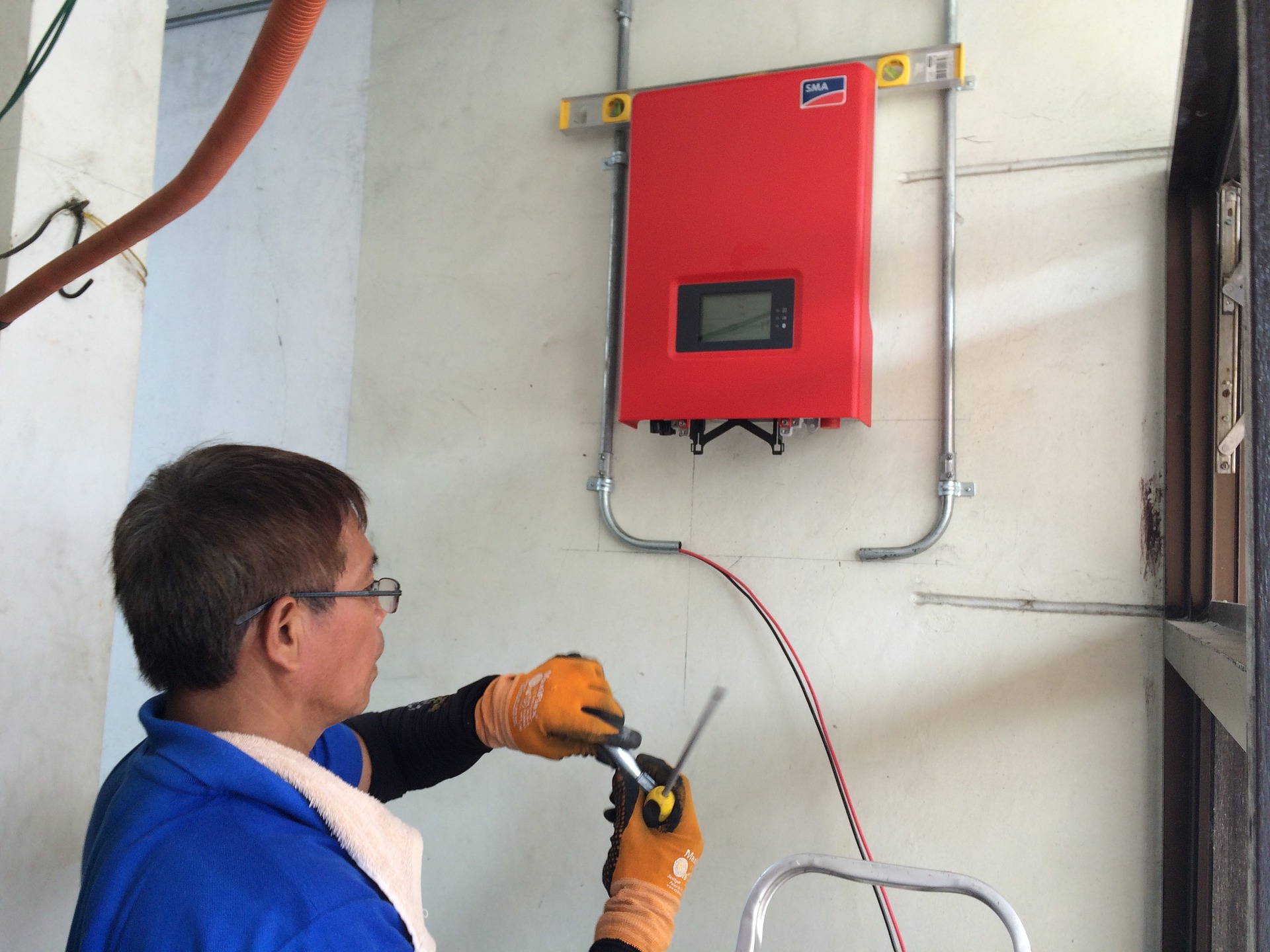
If your solar inverter isn’t working, it might not be the inverter. There could be a problem with another part of your solar power system. Try these simple troubleshooting tips to see if you can pinpoint the problem. Then you’ll know exactly what needs to fix it.
Reasons Why a Solar Inverter May Stop Working
While the tips listed here can help you get your solar power inverter working again, you’ll still want to understand some of the reasons why a solar inverter may stop working. Diagnosing the problem can give you hints toward discovering how to fix the issue. The most common reasons why a solar inverter stops working include a power outage, a grid fault (where the voltage spikes or suddenly drops), a tripped circuit breaker, improper installation, or the inverter could be overheating.
Check the Error Code
Almost all modern solar inverters will provide you with some indication of what’s going on by giving you an error code or some combination of lights that can tell you that something’s wrong. But if you have an older solar power system, it might not be sophisticated enough to flash an error code. And, if you do have a modern inverter and you’re not getting any kind of error code at all, you probably have a more severe issue on your hands, such as a complete power failure.
No Power
If you’re not getting any power to your inverter, see if the rest of your house has power. In some places, solar inverters must shut down in the event of a blackout unless you’re totally off the power grid. In this case, you just have to wait for the power to be restored to your area so that your inverter can receive power again.
Consistently Cloudy
Solar inverters have a feature called “minimum voltage window,” which means the inverter will shut down if the DC voltage has fallen below that minimum voltage window to protect it and your system. So, suppose the sun hasn’t been out in a few days, and it’s been consistently cloudy in your area. You probably have nothing to worry about, and your solar inverter will power up again when the sun emerges, raising the DC voltage above the minimum voltage window.
Check Your Circuit Breakers
If the power is on in the rest of your house and it’s a nice sunny day, but your solar inverter still isn’t working, it’s time to check your circuit breakers. Make sure the breakers in your switchboard are still in the “on” position. Then, check the AC and DC isolators on the inverter to ensure they’re in the correct place. If any of these switches have been tripped, that’s likely causing your solar inverter not to work. Be sure to turn the AC off before the DC switches off to protect your system.
Try a Power Cycle
As with any electrical system, sometimes your solar inverter might freeze for no particular reason. You’ve certainly had this happen with your computer before, and this is a similar situation. Follow your system’s instructions for power down and then reboot your system to see if that resets your inverter and gets it working again.
Check Your System’s Battery
Some solar power systems include a battery, which is just another component that can quit working and cause problems to other parts of your system. First, try to power cycle the battery to reset it. If that doesn’t work, your battery may be impaired, and you’ll need to replace it. At this point, you’re probably going to need to call in a solar power expert anyway, so they can tell you if your battery needs to be replaced.
Turn to the Experts
If you’ve tried all the above troubleshooting tips and still not getting power to your inverter and it’s not displaying an error code to tell you what’s going on, it’s time to turn to the experts. It could be the wiring to the inverter or the solar panels themselves, but there’s no natural way to test these components unless you have the experience and tools a trained expert has. Solar inverters typically have between 10 and 15 years, so if your inverter is around that age, there’s a good chance it just needs to be replaced anyway. A solar panel expert will be able to determine this and provide you with a replacement cost estimate.
Conclusion
Losing power to your solar inverter is a real pain, but you can try to solve the issue yourself using these troubleshooting tips. And, if these tips don’t work, an expert can help you get your solar power system up and running again in no time.




 POSTED BY
POSTED BY 

